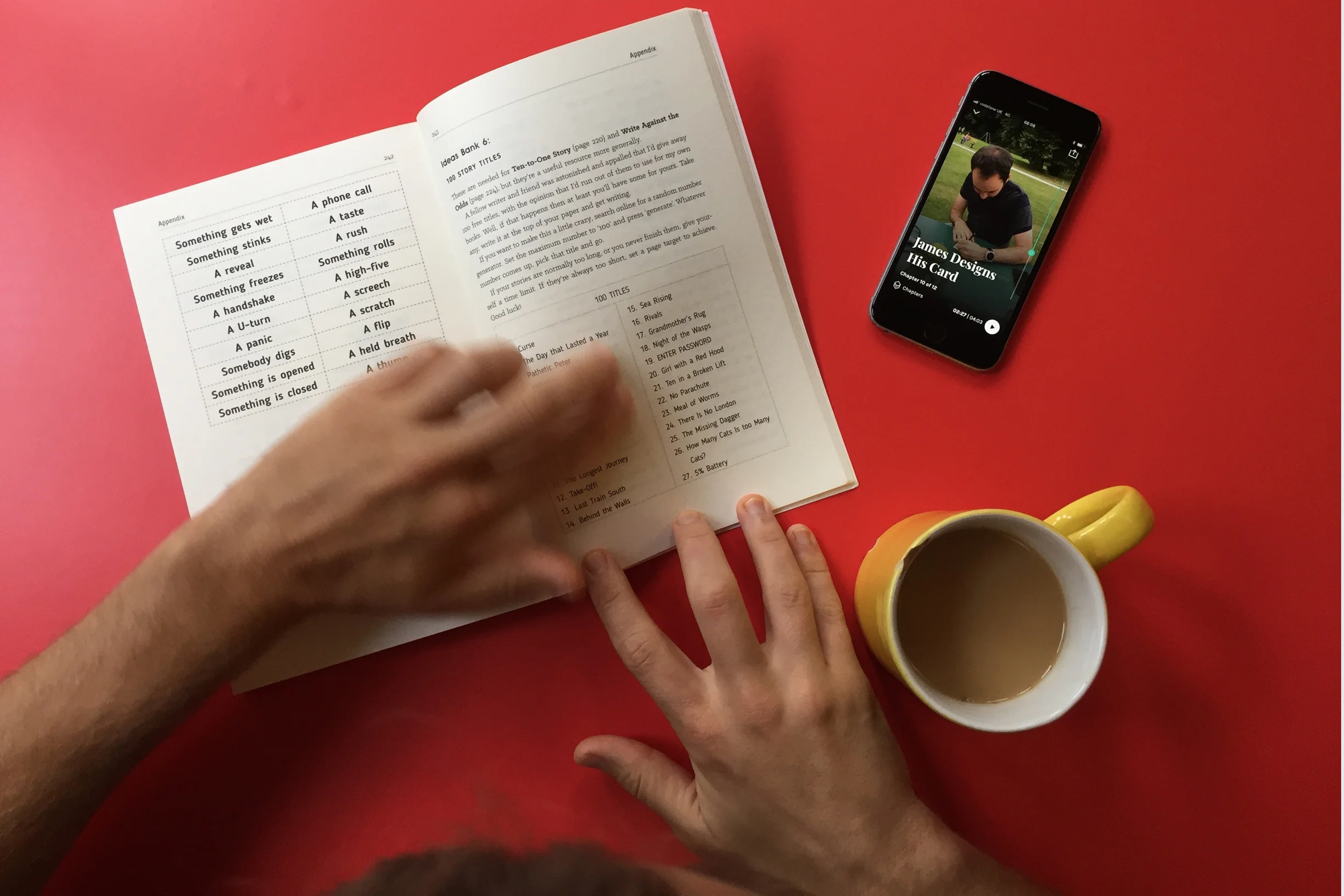3 Storytelling Games That Don’t Care What Happens Next
Listening back to last week’s podcast, I was struck by how naturally my guest, children’s author James Bishop, improvised his way through made-up stories. It was a delight to hear, and while no surprise that an author such as James would be so good at storytelling, it brought to mind the two most common responses I get when I give my pupils a first line and challenge them to continue the story:
“I don’t know what happens next.”
*an endless, flowing torrent of creative babble which, unless I cling on very tight to the bank, will wash me away with its current.*
Let’s start with response number one. The idea of not knowing how a story goes next has nothing to do with lacking creativity or good ideas. (For one, I’ve never met someone who isn’t creative, and everyone has good ideas.) The real problem is this: you’re trying to know something that can’t be known. There is no story after the first line. Not yet, anyway. Start telling that story, and there’ll be something to know.
Of course it’s not that simple. I’m hardly diagnosing ‘Just get on with it’ as a solution for writer’s block, but we’re not far off. Telling a story is pure and simple play, which is why I will stake my career on defending response number two. Babble is great. Babble heads you off on a road without being able to see more than a few steps in front of you, and inventing solutions to overcome roadblocks on the fly. Storytelling should is thrilling, edge-of-your-seat stuff, as exciting for the teller as for the audience, and best when unplanned. The feeling of unearthing the ending of a story only a sentence or two before your audience does is a delight. Storytelling is a logic game, a musical jam, a shared experience. I’ll tell you what it isn’t: an exam.
If you’re a response number one kinda person, don’t fret. As I say, most of my pupils start off there, but I’ve never had one not end up in the second category. For this to happen, obviously judgement has to go out of the window. I’ll often say something like, “Just discover the story, don’t worry where it goes, and we’ll pick out the best bits to write down.” After we’re done, we’ll tease out the workable plot and write that. Talk first, write later, is an absolute must of a maxim. Before even this, though, we’ll take storytelling to its absolute silliest, in an effort to de-spook the whole process. We’ll play games that generate the silliest of stories, and after a few rounds they’re dying to write them down. Here are three games in The Floor is Lava that do exactly that:
Switch
The best thing about this is that you just can’t plan ahead, so you’re constantly forced to deal with the story as it emerges. Tell a story (it could be the plot of a book or film, to begin with), while the other player listens. At any point, the listener can shout ‘Switch!’ and you must repeat the sentence you just finished, but with the opposite meaning. So, for example, “Harry’s uncle and aunt hated him” would become “Harry’s uncle and aunt adored him more than their own son, Dudley”. Or “Frodo threw the ring into the volcano” would become “The ring threw Frodo into the volcano”. The story continues in this new direction. Continue until your tale naturally ends, or when supper’s ready.
Story Tornado
One player tells a story, maybe with a suggested title from the other player. After a minute or so, the player shouts out an item, character or location and the storyteller must incorporate this into the story, while keeping the story at least partially consistent. As the story gets more and more full of odd, ill-fitting componenets, hilarity ensues. This is best played with the whole heap of story ingredients included at the back of my book. However, if you don’t have access to that, your brain is also full of words, I hear.
One Word Story
Take it in turns to say the next word to a story. This takes incredible teamwork, because one dodgy word can shake the whole narrative out of joint. Obviously, that’s what makes the game fun, though, so expect a bit of weirdness.
Have a go at these and discover your latent storytelling powers. Honestly, you don’t realise how good you are. If you want more storytelling games and ideas, grab a copy of The Floor is Lava from your local bookshop, library, or get it online. I’ve also included 100 first lines and 100 story titles in the back of that one, so you’ll never run out of ideas. Whatever the case, though, don’t worry about waiting to tell a story until you know how it ends. It ends with you telling the story, and that’s also how it begins.
